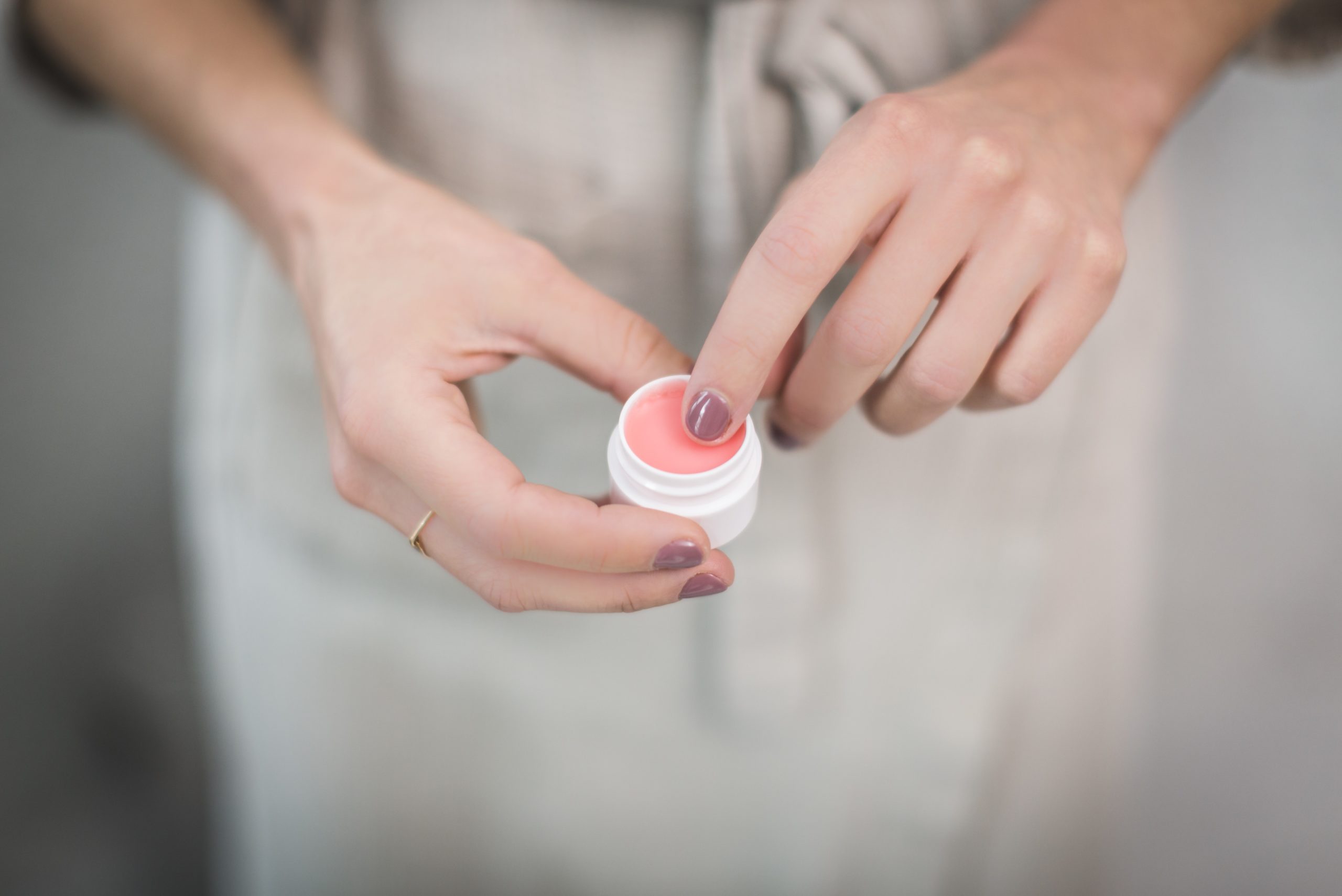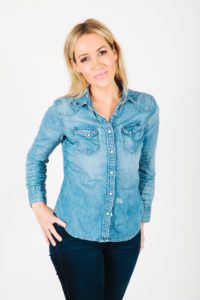

By Carolyn Fikke, Managing Director of Golden Seeds
October 27, 2020
With nothing but mixing bowls, spatulas and a desire for flake-free lips, Sara Happ created a first-of-its-kind product in 2005, launching a business that is now a huge success by any measure. Her company, Sara Happ, Inc., sells a range of lip products – including the lip scrub that started it all – in high-end beauty boutiques, major department stores and online.
Sara recently told Golden Seeds’ Carolyn Fikke how she identified and addressed a hole in the beauty market and parlayed that into a multimillion-dollar enterprise over the next 15 years. On her journey, she overcame numerous challenges and found the support she needed to turn a great idea into a thriving business.
CF: Tell us about the origins of your company.
SH: I was working at ESPN and thought that sports and media would be my career, but I always loved beauty and read about it all the time. My favorite beauty editors kept recommending toothbrushes or washcloths for exfoliating lips, but I thought, “There are scrubs for the face, hands, feet, so why not lips?” I Googled it and there were no results, which sent chills up my spine – there are results for everything!
So in 2005, I set out to make a lip scrub in my kitchen. I showed my product to independent female-funded boutiques in Los Angeles and they all bought it. Then Reese Witherspoon became a fan of the product, and in 2006 People Magazine ran a story about us. My website crashed because of all the traffic, and I made seven times my salary in one weekend. With hundreds of thousands of dollars in credit card orders to fulfill, I realized this was my new job and I left ESPN.
CF: What market need are you solving, and how is your approach different from how others have addressed this need?
SH: We focus on one thing – lips. Any cosmetic chemist will tell you the lip industry is broken. My research convinced me that putting good chemistry behind lip products could change the market, so after my lip scrub was selling well, I set out to create a lip balm.
Unlike the scrub, it didn’t fill a hole in the market. There are tons of products out there, but 98% of them are made to dehydrate lips. That’s why women will say they have 15 different products, but their lips are still flaking or they’re addicted to their lip balm. The more you use, the more you need it. That’s brilliant for business but not kind to the consumer. After working with a lab in New Jersey for three years, I created our hero product, the Lip Slip Balm, a disrupter. Women became obsessed with it because it worked.
That’s how we differentiated ourselves. Our mission is to do lips perfectly. If you have a team of chemists and a team of marketers and their entire job is to figure out what is missing or broken in the lip market and what consumers want, you have a business.
CF: What challenges have you encountered in building your business? How have you overcome them?
SH: Fifteen years ago, when I was starting out, there wasn’t the same level of support for female founders that we have today. Men ran most industries, including cosmetics. They held all the positions of power and owned the labs. It was tough to be a young female trying to convince people who’d been in the industry for decades that I had a viable business. They thought I was adorable and young and crazy, and it was hard to break through that barrier.
Women were my biggest cheerleaders. Even when I wanted to work with the lab in New Jersey to create our lip balm, it was the women who pushed me through. To convince the lab to work with me, I asked the head of sales at the lab to take my product home to his wife and her friends, and if they didn’t like it, I’d stop calling him. They loved it, so he agreed to make it. But once I had a product, it was tough to convince retailers that they should carry a product from an unknown like me, going up against big names like Lancôme, MAC and L’Oréal.
Finding peers was also a challenge. I tried reaching out to executives at the big companies, but they didn’t have time for me. Ten years ago, I reached out to Alli Webb, who founded the Drybar hair salons, and bareMinerals founder Leslie Blodgett. I told them I admired what they’d done and asked for their advice. Both have been trusted advisors and friends ever since.
Now there are great organizations like Golden Seeds and the F Project, a social-impact initiative aimed at raising the profile and economic success of female founders. Los Angeles is full of female founders who share information, best practices and advice. Though not having that early on was a hindrance, it’s made me appreciate everyone — men and women — who are now out there supporting women. Women are narrowing the gap in leadership roles, but 86% of venture capital funding still goes to men. You can’t tell me only 14% of good ideas come from women. We need more investors like Golden Seeds to believe in women and invest in them.
CF: What’s coming up next for your company? Any recent milestones?
SH: One of the things I’m proud of is that we kept our entire team employed this year, despite COVID-19, with no layoffs or furloughs. We sell directly to the consumer via our website (www.sarahapp.com), online and in stores like Ulta and Neiman Marcus and on QVC. Sales have taken off on QVC, and our products are selling well online. Next year, we plan to double down on our QVC and Ulta business because the market demands it. We also just launched in China, mainly with the investment Golden Seeds made in us. That was pivotal for us.
CF: What advice do you have for early-stage founders?
SH: At first, I tried to create my company alone because I thought it was my responsibility to do everything – even things I’m not good at – partially because money was a factor. So, if I couldn’t hire an accountant, I became the accountant. That said, don’t be afraid to ask for help. You’ll be shocked at what people are willing to do for you. The first time I asked a lawyer to help pro bono, he said, “Of course.” Then I gave equity to an accountant for assisting me. And the help I received from the female founders of Drybar and bareMinerals was amazing. There is such a strong founder base out there. Reach out to five people you admire who have crushed their vision. Learn about their stories, respect their time, and you’ll be surprised at how much they’ll give back.
CF: Tell us about your experience with Golden Seeds and how its network has helped you?
SH: Before Golden Seeds, we never took funding. I bootstrapped the company and ran it profitably for 14 years. It wasn’t until Golden Seeds came into the picture that we felt comfortable accepting money because you believed in our vision. My president, Peggy Fry, and I had gone into so many rooms of male investors who asked us questions they’d never ask another man.
Golden Seeds was the first to commend us for the success we had because we were female, we were our own consumer and knew our audience. You recognized that being a woman was an asset, not a liability. We went from being a small indie brand to a company able to play in the big leagues. Everyone at Golden Seeds and in its network of investors believes in women and supports them. We were closing our last round of financing when COVID hit and the economy became dubious for everyone. Yet the investors at Golden Seeds honored their commitment, which truly speaks to the power of your network.
For more wisdom like this from other incredible female leaders, read more on Golden Seeds’ blog